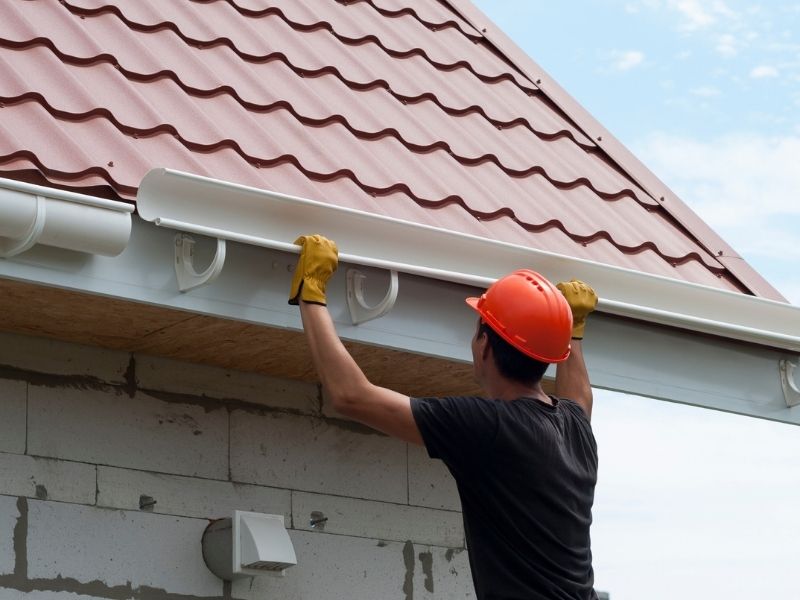A roof replacement is a significant investment for homeowners in Maryland. With the state’s diverse climate, ranging from hot summers to snowy winters, a sturdy and well-maintained roof is essential to protect your home and its contents.
However, the cost of a roof replacement in Maryland can be substantial, making it crucial for homeowners to plan and budget effectively. In this article, we will explore some valuable tips and strategies for budgeting a roof replacement project.
Contents
Assess the Condition of Your Current Roof
Before setting a budget for your roof replacement, it is essential to assess the condition of your current roof. Engage a professional roofing contractor to conduct a thorough inspection. They will evaluate the roof’s integrity, identify any existing damage, and determine whether a repair or a full replacement is necessary. This assessment will provide you with an accurate understanding of the scope of work required and its associated costs.
Research Roofing Materials and Costs
In Maryland, homeowners have several roofing materials to choose from, including asphalt shingles, metal, wood shakes, and slate. Each material comes with its own benefits and price points. Research the various roofing options available and compare their durability, longevity, and maintenance requirements. Additionally, consider the cost of the materials per square foot or per bundle, as well as the installation costs associated with each type. By doing so, you can make an informed decision about the most suitable material for your budget and needs.
Obtain Multiple Quotes from Roofing Contractors
To ensure you get the best value for your money, obtain multiple roof quotes for roof repair in Maryland from reputable roofing contractors. Invite at least three to four contractors to assess your roof and provide detailed estimates. Be cautious of extremely low quotes, as they may indicate subpar materials or workmanship. On the other hand, exorbitantly high quotes may not necessarily guarantee top-notch quality. Aim for a balance between reasonable pricing and excellent service.
Consider Additional Costs
When budgeting for a roof replacement project, it’s crucial to factor in additional costs that may arise during the process. Some potential additional expenses include:
Roof Decking Repairs
If the roofing contractor discovers any structural issues with the roof decking during the inspection, it will need to be repaired or replaced before installing the new roof. This could add to the overall project cost.
Permit Fees
In Virginia, obtaining permits for a roof replacement is typically necessary. The cost of these permits varies based on the location and the scope of the project. Be sure to include these fees in your budget.
Removal and Disposal of Old Roofing Materials
The cost of removing the old roofing materials and disposing of them properly should also be considered. This expense can depend on the size of your roof and the type of material being removed.
Ventilation and Insulation
Proper roof ventilation and insulation are essential for maintaining energy efficiency and prolonging the life of your new roof. Depending on the condition of your current ventilation and insulation, you may need to allocate funds for upgrades or replacements.
Explore Financing Options
Given the significant cost of a roof replacement, it’s essential to explore various financing options if you don’t have sufficient savings to cover the project. Some potential financing avenues include:
Home Equity Loans
Home equity loans allow you to borrow against the equity you’ve built in your home. They often offer lower interest rates and can be an attractive option for funding large home improvement projects like a roof replacement.
Personal Loans
Personal loans are unsecured loans that you can use for various purposes, including home improvements. They generally have higher interest rates than home equity loans, but they do not require collateral.
Roofing Manufacturer Financing
Some roofing manufacturers offer financing options for their products. These programs may come with special promotions or competitive interest rates.
Credit Cards
Using credit cards to finance a roof replacement should be a last resort due to their typically high-interest rates. However, if you can pay off the balance quickly, it may be a viable short-term option.
Set Aside an Emergency Fund
During any home improvement project, unexpected issues may arise, leading to additional costs. To safeguard yourself against such surprises, it’s wise to set aside an emergency fund. Aim to allocate around 10% of your total budget to this fund, providing you with peace of mind throughout the project.
Plan for Regular Roof Maintenance
After investing in a new roof, it’s essential to plan for regular maintenance to extend its lifespan and avoid costly repairs in the future. Routine inspections, gutter cleaning, and addressing minor issues promptly will help keep your roof in excellent condition for years to come.
Conclusion
Budgeting for a roof replacement in Maryland requires careful planning and consideration of various factors. By assessing your current roof’s condition, researching roofing materials, obtaining multiple quotes, and factoring in additional costs, you can develop a realistic budget.
Exploring financing options, setting aside an emergency fund, and planning for regular maintenance will further protect your investment and ensure your new roof provides the necessary protection and comfort for your home.
Remember that a well-maintained roof not only enhances your property’s value but also provides peace of mind during extreme weather conditions.




